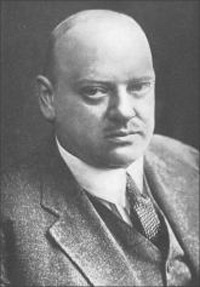National Liberal Figures in History
GUSTAV STRESEMANN (1878-1929)
Gustav Stresemann was a post-WW1 German Chancellor and Foreign Minister. As a young student he was drawn to a Liberal movement attempting to limit the power of the German Emperor Wilhelm II over Parliament (Reichstag). He combined his liberalism with a strident nationalism and whilst initially attracted to the ideas of the Liberal reformer (and nationalist) Friedrich Naumannn he ultimately threw his lot in with the National Liberals.
The latter was more a coalition than a single-minded party, one wing (that Stresemann was part of) focused on social reform while still ‘patriotic’ in foreign policy whilst the other had moved towards supporting business as part of a ‘nationalist’ agenda. Despite the differences Stresemann’s natural charisma and organisational skills attracted support from all wings of the party and, under the ‘unifying stresses’ of the First World War, took over leadership of the party (which had lost a lot of support since its’ heyday in the 1870’s).
The end of the War led to the abdication of the Emperor, the creation of the Wiemar Republic and a host of new parties. Stresemann initially joined the newly formed German Democratic Party (DDP) in 1918 but was rejected given his previous ‘annexationist’ views and formed the German People’s Party (DVP) the following year. The party promoted Christian family values, secular education, lower tariffs, opposition to welfare spending and agrarian subsides. Some of these policies could be seen in line with his earlier (reformist) National Liberal agenda but reducing welfare spending not. It seems however Stresemann was trying to find the cuts needed to pay the debt dictated by Versailles. Failure to do so would invite invasion and a loss of self-governance. He was protecting Germany’s status as a nation state. Internally he called for an end to the restrictive Prussian franchise and supported pure representative democracy.
Wiemar Republic and a host of new parties. Stresemann initially joined the newly formed German Democratic Party (DDP) in 1918 but was rejected given his previous ‘annexationist’ views and formed the German People’s Party (DVP) the following year. The party promoted Christian family values, secular education, lower tariffs, opposition to welfare spending and agrarian subsides. Some of these policies could be seen in line with his earlier (reformist) National Liberal agenda but reducing welfare spending not. It seems however Stresemann was trying to find the cuts needed to pay the debt dictated by Versailles. Failure to do so would invite invasion and a loss of self-governance. He was protecting Germany’s status as a nation state. Internally he called for an end to the restrictive Prussian franchise and supported pure representative democracy.
Although initially sceptical of the new Republic, out of all the German politicians he was one who really wanted to make Germany’s post-war democracy work and create a stable state. From the 1920s onwards Stresemann became an ever more powerful figure. Eventually he became the Chancellor and introduced initiatives to ease relationships with the other European powers and improve the economy.
Even after the coalition government fell apart a new one was formed with him as foreign minister where he tried to secure Germany’s economic independence through the Dawes (1924) and Young plans (1929) which limited war reparations. Other politicians were either powerless or hankering for (a disastrous) war. His courage in an atmosphere of helplessness or belligerence is to be admired. It was Germany’s loss when he died suddenly in 1929. It is highly likely that he would have become President and blocked the rise of Hitler with his mix of patriotism and social reform.
Whilst he expressed some views at odds with NL ideology e.g. restoring the the monarchy and imperialism he was a product of his environment and the times.
He supported his nation and defended it when countries tried to rip Germany apart. He also promoted self-determination and fought to maintain liberty, independence and democracy (in a country more at ease with authoritarianism) through peaceful negotiations and constructive agreements. Overall he is a symbol of what one man can do if he has the ideas and the motivation to see those ideas through.
Date: February 14, 2011
Categories: Articles































